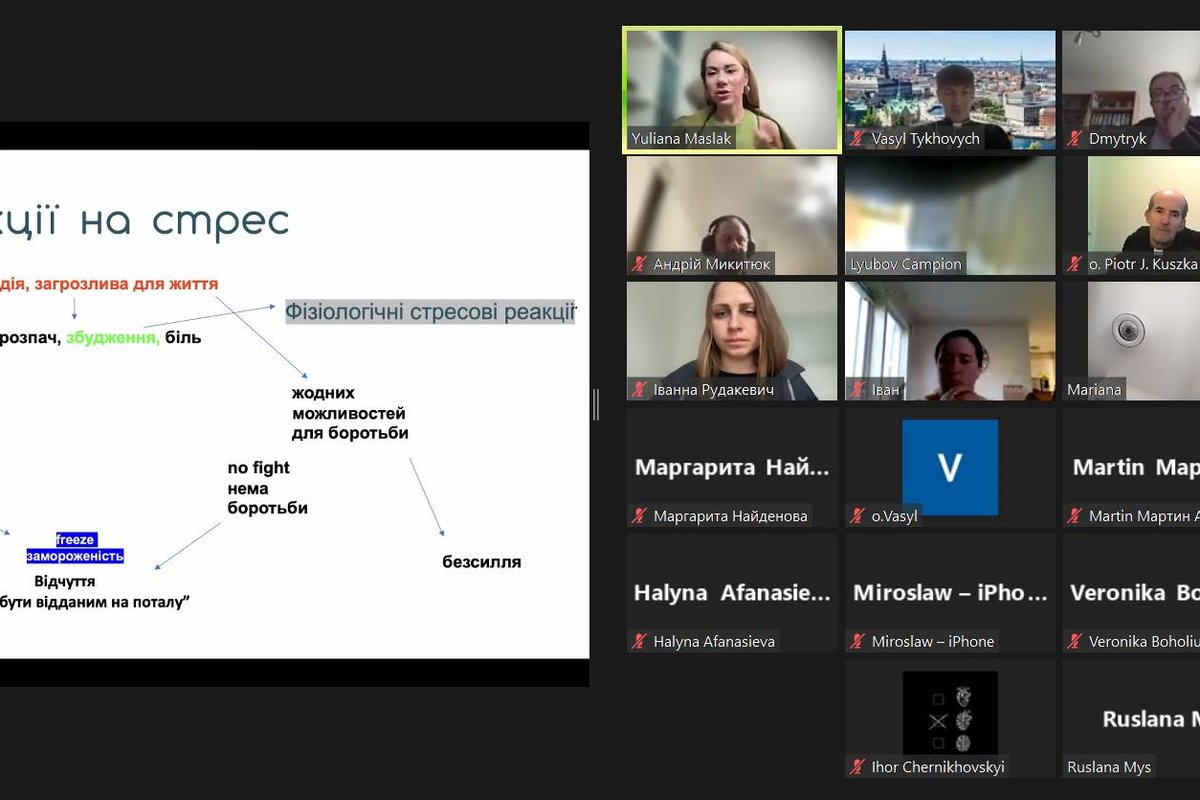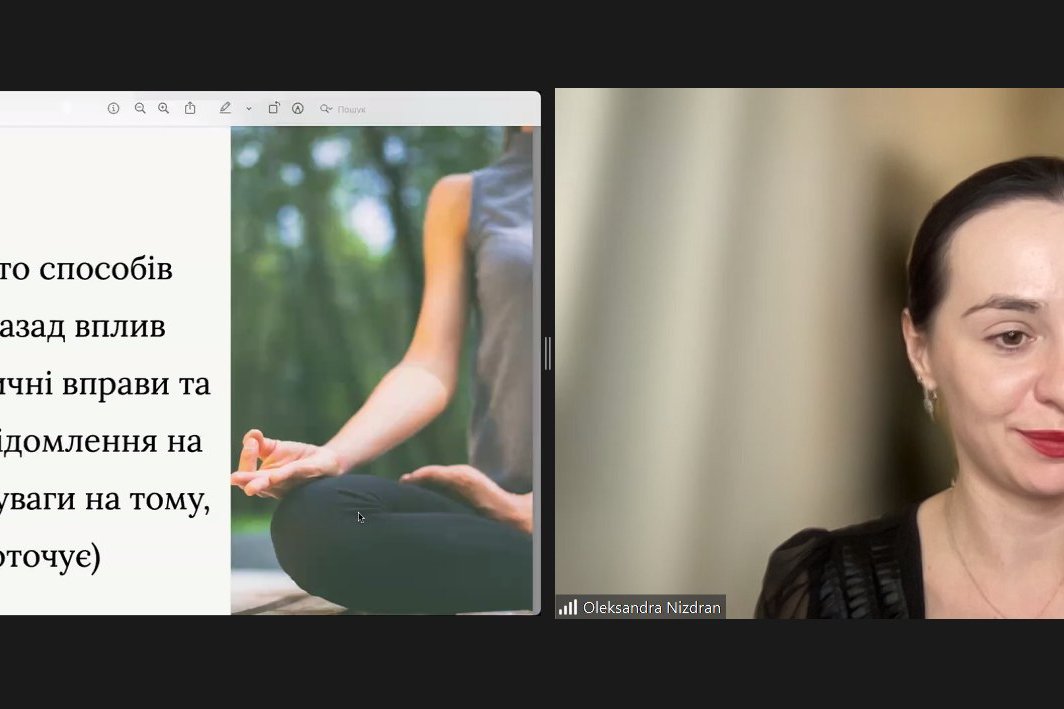Training for UGCC parishes abroad to support children and families affected by war
UCU's Center for the Dignity of the Child initiated a series of webinars for clergy and laity of UGCC parishes abroad to teach them how to support Ukrainians fleeing the war. The training touched on the impact of trauma on the human psyche and the skills of communication with people who have suffered trauma. The students learned how to build up their resilience, take care of resource recovery and find balance in the face of war, and how to share useful practices with those in need.
"Even if we can't solve the difficulties of every child who is forcibly displaced abroad, we can be sensitive to their needs. We can create centers, organize events, be supportive, ask how we can help. We have to become a trauma-sensitive society. It is important for us to understand the symptoms of post-traumatic disorder and be able to help those who need it," said Yuliana Maslak, a child psychiatrist, psychotherapist in the method of cognitive behavioral therapy during training for UGCC parishes abroad.
The UCU Center for the Dignity of the Child initiated training for clergy, religious and laity who serve in UGCC parishes abroad and interact with children or families affected by war with psychiatrists, psychotherapists Yuliana Maslak and Oleksandra Nizdran. A series of 4 webinars "Human Dignity in Time of War: How the Church Abroad Can Help Ukrainians" to teach how to support and help, restore a sense of security, provide the necessary assistance and respond in a kind way to the experience of people who have suffered violence during the war, and how to remain a resource themselves.
"We don't know when the hard times might end. So it is better to prepare for a long race and take care of your own resources. We need to know what can fill us up, give us optimism, and who we can turn to. What values can be our support, understand what we are fighting for," said Oleksandra Nizdran, a positive psychotherapist and clinical psychiatrist, during the webinar. The expert shared practical tips to help preserve vitality, resilience, and techniques to help maintain vitality. They can be used for yourself, as well as when working with children or families in need of support.
Child psychiatrist Yuliana Maslak spoke about the reactions of children and adolescents to traumatic events. How to support children who have lost relatives or those who have relatives in the war, how to listen to those who share their own traumatic experiences, how to support parents.
"War exacerbates all problems, and those related to the experience of violence even more so. The war directly affects the mental health of children, according to preliminary findings of experts, 15-25% may have symptoms of PTSD, but most children will have post-traumatic growth. The phenomenon of stress resistance and post-traumatic growth is when you can grow internally, like a tree that survived the storm and continues to grow," noted Yuliana Maslak.
If adults receive timely support and assistance, it will also have a positive impact on the emotional state of children. The mental health of children depends on the condition of their parents, and the younger the child, the deeper this dependence is.
Four webinars were held on the following topics:
- "Psychological support for people fleeing the war.
- "Childhood trauma: causes and consequences".
- "The impact of war on the sense of security and brain processes. How to help people build resilience: exercises".
- "Self-care. A healthy reaction to someone else's trauma. Techniques of resource recovery and abstraction. How to find a balance in the conditions of war: exercises".

